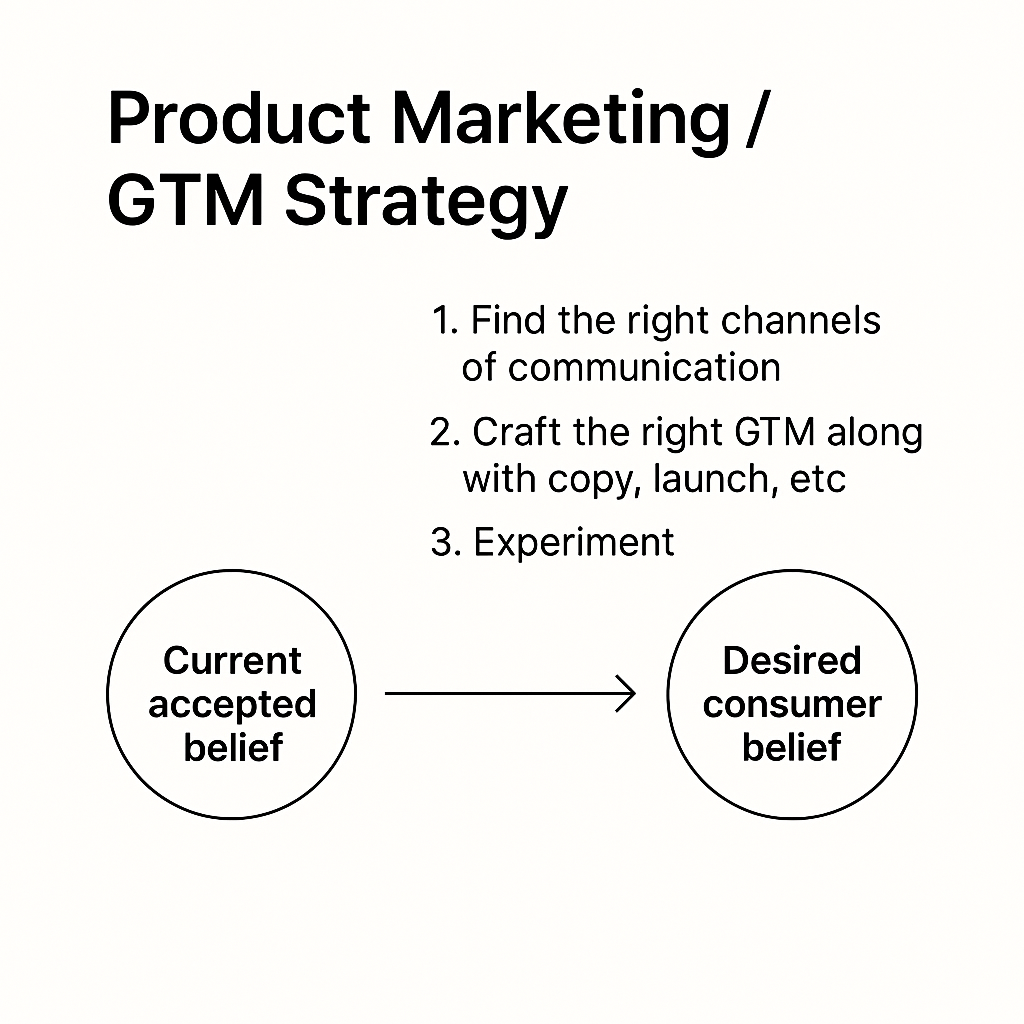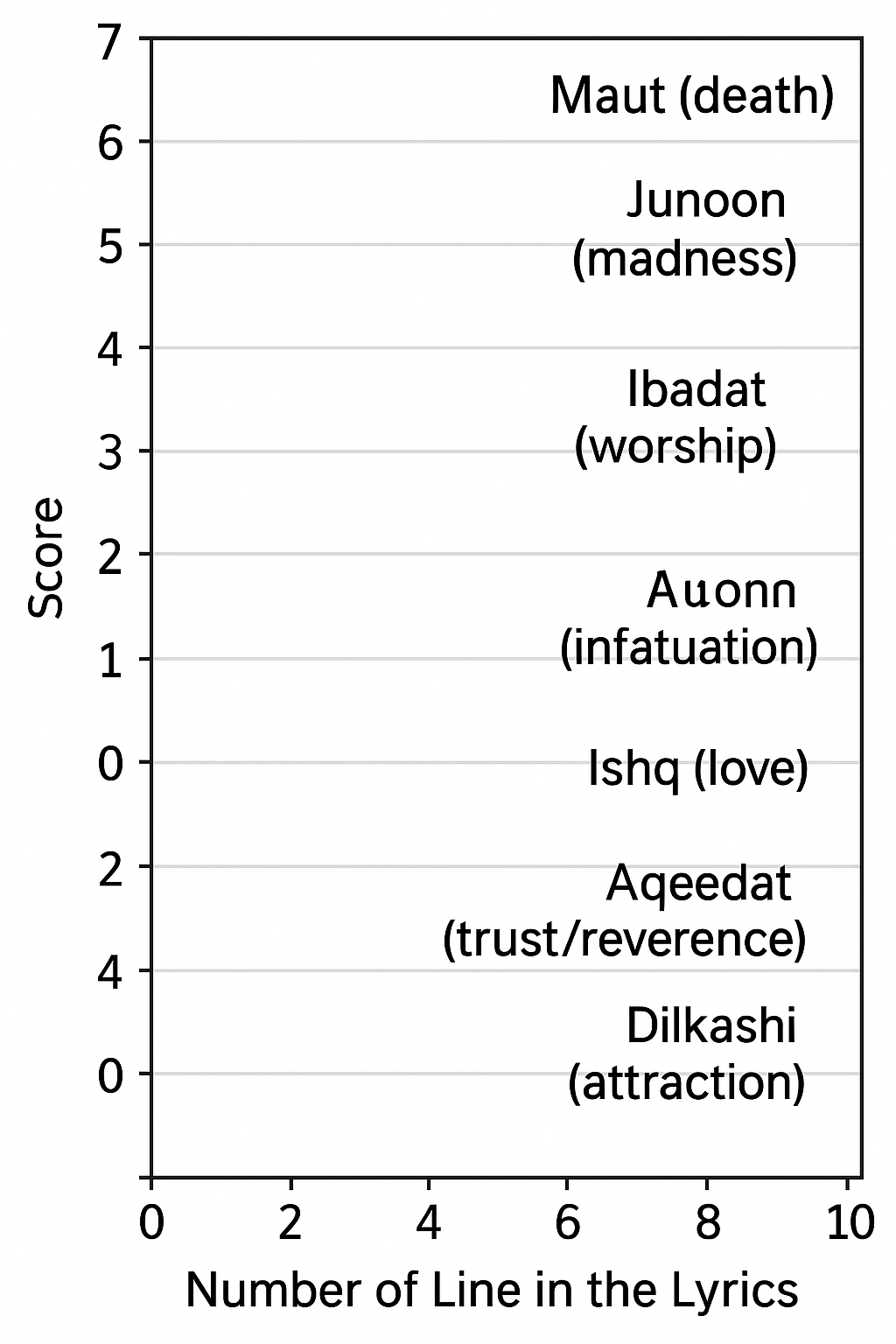Most recent thoughts, views, or learnings. Mostly about product and startups.
Customer States
In 2021, I had attended The Insurjo Program (First PM Bootcamp) by The Product Folks. There Anuj Rathi (then SVP of the decacorn Swiggy) had mentioned about changing customer states in GTM.

I found the idea of thinking in customer states interesting. It sort of helps me visualise that changing a state would require a certain threshold of effort and user interaction with your brand.
Recently, Gokul Rajaram (the man who built Ad products in Google and Meta), shared in his talk at PeakXV (Sequoia India) that to build a successful product, teams must shift focus from simply adding new features to achieving meaningful customer outcomes. Every feature should be linked to a specific change in customer state/behavior, whether it's turning a prospect into a customer, increasing engagement, or preventing churn. By prioritizing outcomes, companies ensure that their product evolves with purpose and drives real value for customers, rather than becoming a 'feature factory' with no clear objectives.
I don't know about you but one of the stalwarts of Product Management saying, 'EVERY FEATURE should be linked to a specific change in customer state.' has me thinking about how most of us operate without obsessing with outcome at every stage of user journey.
User Journey of a Song
Recently I was listening to a song, Teri Jhuki Nazar. It's about the early stages of infatuation - the delicate, uncertain space before love is declared. While the lyrics and soulful music beautifully capture that phase, I noticed something that disrupted the experience for me. Early on in the song, the lyricist uses the word love (Hindi: "Mujhe hai pata tere pyaar ka").
That line felt out of place - as if it jumped ahead in the emotional timeline. In a stage of romance where love should only be implied, saying it outright kind of broke the mood. That got me thinking: could we dissect the user journey of a song the same way we do for a product or experience?
Here's what I'm exploring:
We can think of the user journey of a song as having three key components:
- •Music
- •Lyrics
- •Tempo
While I'm a novice when it comes to music and tempo, I've been thinking about how to build a framework around lyrics:
- First, lyrics should define the emotional spectrum they want to explore - setting the upper and lower bounds of intensity within a specific emotion (e.g. infatuation, longing, heartbreak, etc.).
- In the case of Teri Jhuki Nazar, the lyricist could have defined the stage as early infatuation - not full-blown love - and maintained that emotional boundary throughout.
- This means visualizing the emotional progression on a y-axis, with time on the x-axis, and consciously deciding not to cross certain emotional thresholds if it doesn't serve the journey.

A similar approach could be applied to music and tempo, though those components might benefit more from variation than constraint - depending on the effect the song wants to have.
The Four BB Framework

While working at a startup as an APM, the need rose for us to pivot. I saw how chaotic the priorities can get or how alignment becomes tough. I recently came across the Four Big Buckets Framework by Anuj Rathi, CEO Cleartrip (ex- SVP Revenue & Growth at Swiggy).
The Four BB framework helps startups prioritize their product strategy by categorizing efforts into four key areas: Brilliant Basics, Bread and Butter, Big Bets, and Breaking Bad.
- •Brilliant Basics refer to foundational elements that must be maintained.
- •Bread and Butter represents routine improvements and maintenance.
- •Big Bets focus on large, risky investments with potential for high reward.
- •Breaking Bad involves radical pivots or rebranding efforts.
The senior management should allot 'focus points' to each bucket, which helps in balancing short-term improvements with long-term innovation, ensuring alignment with company goals and leadership.
